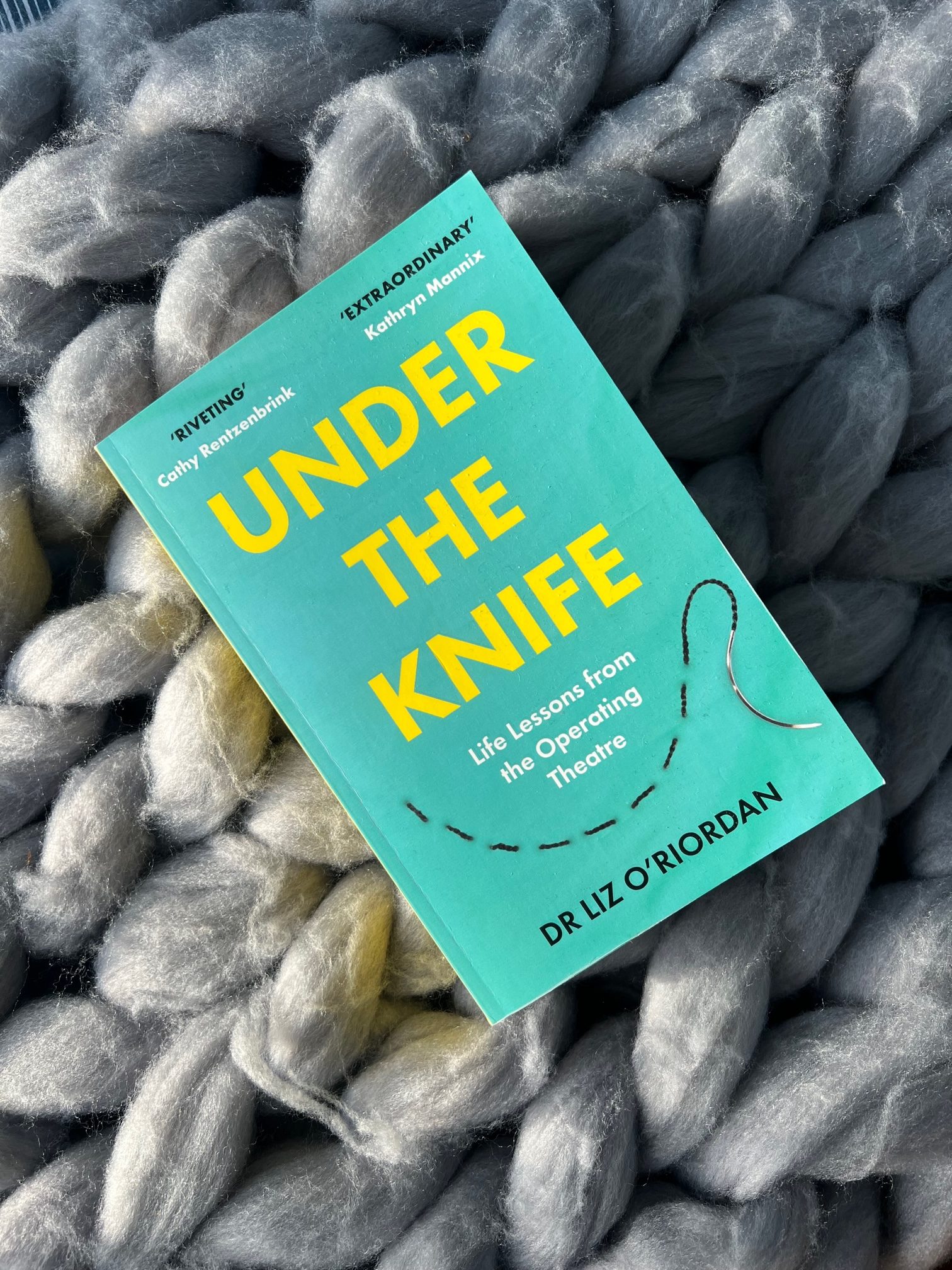This book is particularly special to me, because I’m proud to say that I supported it in a literal sense. Having struggled to find interest from traditional publishers, Liz chose to use Unbound (which, by the way, I highly recommend checking out – it’s crowdfunding for books; I’ve now supported two others via the platform and Liz’s is the first one to make it to publication) to get her book into the world. Having cruised to her funding target in a mere 10 days, Under the Knife became a reality during 2022, slated for publication in July 2023.
Whilst she was campaigning, Liz was also caring for her Mum and supporting her Dad, as Isobel was diagnosed with and treated for osteosarcoma – a rare bone cancer. Sadly, the disease progressed quickly, and Isobel died towards the end of 2022 – the book is fittingly dedicated to her.
A book of two halves
For those of you who don’t know, Liz O’Riordan is a former breast surgeon… who’s had breast cancer twice. The side effects of her cancer treatment forced her to retire far earlier than she might’ve otherwise, and she now works tirelessly as an author and educator, sharing her own story and using her skills as a medic to digest and assimilate scientific studies and much more via social media. Her videos on topics from how to properly check your breasts and fit a bra, to advances in drug treatments and what it’s like to get a mammogram are the tip of the iceberg.
She’s honest about her own journey through treatment, and how it opened her eyes as a medic – despite having treated patients who went through cancer, she knew very little about treatments beyond the one she provided as a surgeon, and this compelled her to advanced her knowledge and share it with the general public.
As a result of her life taking a big twist, the book fell very distinctly into two main stories for me: Liz’s journey to becoming a surgeon and her experiences of being a doctor, and then her cancer diagnosis and everything beyond that. There are, of course, some crossovers. Liz details meeting her now-husband (who’s also a surgeon) and what it was like to be around colleagues who had known her pre-cancer when she was on treatment. She’s also upfront about her history of mental health issues, which date from her time at medical school all the way to the present day.
What it’s like to become a doctor
I’ve got a close friend who’s a doctor, and I’ve also known several professionally due to my own health. Thanks to my friend (who I’d known since she was an undergraduate), I’m already quite aware of what it’s like to go through medical school, plus years as a junior doctor. And I know that it’s far from easy.
Liz’s account in many ways mirrors my friend’s: she shares the overwhelming amount of knowledge students must gain; how they’re treated by senior colleagues; what it’s like to both work and try to tick training boxes and get your next job all at the same time. And still, I forget that medics are human beings too. That cases impact them.
I don’t want to spoil the book too much, so I’ll leave it at this: what Liz shares is powerful on a human level.
Doctor becomes patient
This was when the book was relatable in a different way for me. I did a lot of nodding when Liz described what it was like to find a lump and go through the treadmill of scans and tests to ascertain what it was and how bad things were. She admits that, to an extent, she knew too much, and that this made things both better and worse for her.
And again, it’s a reminder that doctors are human too. Health issues happen to them just as they do to us non-medics. And there’s no escaping treatment side effects, no getting around the system. Liz, like many other patients, experiences the famous scanxiety, and I again related to the fact that our bodies and minds truly are changed by this situation – it is a long time (if ever) until we feel “normal” again.
It’s a reminder to live
Just to be cheesy for a moment, the shifting sands of the COVID pandemic really drove home for me that life is a privilege, and that it’s for living when we have the chance. Tomorrow is not a promise or a guarantee, and so as much as reasonably possible, we owe it to ourselves to enjoy whatever we can, whenever we can.
There can be life beyond cancer treatment. It takes a while to heal, and it may look different to the life you imagined. But it is also worth making the effort for when you are one of the ones fortunate enough to make it.
You can find out more about Liz via her website, and I highly recommend checking out Under the Knife too
